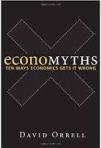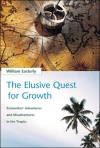This list is provided courtesy of the Manchester Post-Crash Economics Society.
Old, but relevant, critiques of the mainstream
Sraffa, P. 1926. ‘The Law of Returns Under Competitive Conditions.’ The Economic Journal: 36: 144, 535-550.
Sraffa makes an early case against marginalist theories of the firm based on their observed behaviour, particularly their use of spare capacity and absence of increasing marginal costs.
Robinson, J. 2006. Economic Philosophy. Aldine Transaction.
Gives an overview of economic thought, showing how it is almost always impossibly intertwined with ideology. Makes some succinct points about how theories can be presented in such a way as to obscure and mislead.
Hicks, J. 1980. ‘“IS/LM”: an explanation.’ The Journal of Post-Keynsian Economics, 3:2, 139-154.
The creator of IS/LM disowns IS/LM, based largely on the confusion surrounding Keynes’ use of ‘uncertainty’.
Modern critiques
Varoufakis, Y. and Arsnberger, C. 2006. ‘What Is Neoclassical Economics?’ The Post-Autistic Economics Review. 38:1.
The article that was set for our first reading group, this tries to define neoclassical economics rigorously so that its proponents cannot avoid criticism.
Lawson, T. 2013. “What is this ‘school’ called neoclassical economics?” Cambridge Journal of Economics.
Does the same as the above article, but adopts a slightly different definition to Varoufakis and Arsnperger.
Varoufakis, Y. ‘Neoclassical Economics: A Most Peculiar Failure.’
Notes the surprising resilience of the neoclassical paradigm given its remarkable failure in the recent crisis.
Keen, S. 2011. Debunking Economics. Zed Books.
Takes aim at numerous neoclassical theories for internal inconsistency, and presents an alternative model of the macroeconomy, suitable for modelling financial crises.
Aldred, J. 2010. The Skeptical Economist: Revealing the Ethics Inside Economics. London: Routledge.
Throws doubt on a lot of the ‘value-free’, market-based ideas implied by economics and economists.
Georgism/Land Economics
 George, H. 2011. Progress and Poverty. Evergreen Books.
George, H. 2011. Progress and Poverty. Evergreen Books.
Regarded by himself and his followers as the ultimate solution, this book outlines the role land plays in extracting economic rent, making the economy less productive and producing poverty. It is also worth noting that almost nobody disputes the usefulness of a Land Value Tax, though they may dispute quite how strongly Georgists state their case.
Marxism
 Kliman, A. 2013. Reclamining Marx’s Capital: A Refutation of the Myth of Inconsistency. Lexington Books.
Kliman, A. 2013. Reclamining Marx’s Capital: A Refutation of the Myth of Inconsistency. Lexington Books.
An excellent and simple exposition of the labour theory of value. Mathematical, but mostly just tables and arithmetic, and clears up all of the confusion surrounding Marxism. Aims to show that the labour theory of value is a coherent, valid theory, though it makes no attempt to discern whether it is correct.
Kliman, A. 2011. The Failure of Capitalist Production: Underlying Causes of the Great Recession.
Pluto Press. The same author as above tries to make the empirical case for the labour theory of value based on the tendency of the rate of profit to fall, and relates it to the 2008 financial crisis. Paste this link into your browser to get 30% off this book! http://bit.ly/qcCMGr
Verso Books have also published a Marxist-themed ‘post crash’ reading list.
Institutional Economics
 Prasch, R. 2008. How Markets Work: Demand, Supply and the ‘Real World’. Edward Elgar Publishing.
Prasch, R. 2008. How Markets Work: Demand, Supply and the ‘Real World’. Edward Elgar Publishing.
Builds up some alternative theories of demand-supply and makes some interesting ethical/political observations along the way.
Hodgson, G. 1993. ‘Institutional Economics: Surveying the ‘Old’ and the ‘New’’ Metroeconomica, 44:1, 1-28.
Dr Hodgson takes a look at both ‘types’ of institutional economics, debating the relative pros and cons of each.
Simon, H. 1995. ‘Organisations and Markets.’ Journal of Public Administration Research and Theory, 5:3, 273-294.
Simon argues that organisations – firms, governments, unions and so forth – are really the dominant way resources are allocated in society, and that economics should shift away from its focus on markets to reflect this.
Anthropology
 Graeber, D. 2011. Debt: the First 5000 Years. Melville House.
Graeber, D. 2011. Debt: the First 5000 Years. Melville House.
Graeber outlines what he calls the “myth of barter”, stated by many economics textbooks, which argues that money arose because it helped people exchange cows and chickens more easily. He shows that this is quite absurd and is also not borne out by the historical record: historically, societies have engaged in ‘trade’ through credit relations.
Austrian Economics
The Use of Knowledge in Society, Friedrich Hayek.
Hayek defends a market economy over planning on the basis of imperfect knowledge and disequilibrium, which many critics of neoclassicism use to justify government intervention.
History of Thought
 Heilbroner, R. 2011. The Worldly Philosophers: the Lives, Times, and Ideas of the Great Economic Thinkers. Touchstone.
Heilbroner, R. 2011. The Worldly Philosophers: the Lives, Times, and Ideas of the Great Economic Thinkers. Touchstone.
The classic text for the history of thought that should need no introduction. Sketches out the development of economic thought from Adam Smith through Karl Marx to neoclassical economists and Keynes.
 Foley, D. 2008. Adam’s Fallacy: A Guide to Economic Theology. Belknap Press.
Foley, D. 2008. Adam’s Fallacy: A Guide to Economic Theology. Belknap Press.
Has the same theme as above, but also traces the history of the idea that the economic sphere is a separate, ‘natural’ phenomenon with which we cannot interfere. An excellent introduction to the history of thought from a heterodox perspective.
 Tily, G. 2007. Keynes Betrayed: The General Theory, the Rate of Interest and ‘Keynesian’ Economics. Palgrave McMillan.
Tily, G. 2007. Keynes Betrayed: The General Theory, the Rate of Interest and ‘Keynesian’ Economics. Palgrave McMillan.
Discusses the difference between ‘Keynes’ as taught in classrooms and Keynes’ actual theories. Relevant to contemporary debates about monetary policy.
The Financial Crisis
Bezemer, D. 2009. “No One Saw This Coming: Understanding Financial Crisis through Accounting Models.” MPRA online.
Notes the 11 economists who made largely sound predictions of when the financial crisis would happen and how it would happen.
 Lanchester, J. 2010. Whoops!: Why Everyone Owes Everyone and No One Can Pay. Penguin.
Lanchester, J. 2010. Whoops!: Why Everyone Owes Everyone and No One Can Pay. Penguin.
The most readable introduction to the financial crisis, written by a journalist. Great if you can’t separate your AIGs from your CDOs.
 Smith, Y. 2011. ECONned: How Unenlightened Self-Interest Undermined Democracy and Corrupted Capitalism. Palgrave MacMillan Trade.
Smith, Y. 2011. ECONned: How Unenlightened Self-Interest Undermined Democracy and Corrupted Capitalism. Palgrave MacMillan Trade.
Probably the best book on ‘what happened’ the financial crisis, and also links in the role of economic theories.
 Fisher, I. 1933. The Debt-Deflation Theory of Great Depressions. ThaiSunset Publications.
Fisher, I. 1933. The Debt-Deflation Theory of Great Depressions. ThaiSunset Publications.
Short outline of how an indebted economy can suffer from prolonged deflationary depressions, written by Fisher after his faith was shaken in the 1929 stock market crash. Relevant to the recent crisis.
Other Sciences on Economics
 Orrell, D. 2010. Economyths: Ten Ways Economists Get It Wrong. Wiley.
Orrell, D. 2010. Economyths: Ten Ways Economists Get It Wrong. Wiley.
An Applied mathematician takes his toolkit to mainstream economics. Highly readable and a great introduction to the dynamic thinking used in many natural sciences.
 Potts, J. 2001. The New Evolutionary Microeconomics: Complexity, Competence, and Adaptive Behavior. Edwin Elgar Publications.
Potts, J. 2001. The New Evolutionary Microeconomics: Complexity, Competence, and Adaptive Behavior. Edwin Elgar Publications.
A biological/game theoretical/Schumpeterian perspective on firms, complexity and expectations.
Beinhocker, E. 2007. The Origin of Wealth: the Radical Remaking of Economics and What it Means for Business and Society. Harvard Business Review Press.
Uses complexity science and ideas from various disciplines, most notably biology, to model the economy as a network.
Gallegati et. al., 2006. Worrying Trends in Econophysics. Physica A, 370, 1-6.
A group of heterodox economists criticise physicists’ attempts at economics. Econophysicist Joseph McCauley also has a rebuttal – both of these articles were set for our third reading group.
Mainstream Economics
 Harford, T. 2007. The Undercover Economist. Random House Trade Paperbacks.
Harford, T. 2007. The Undercover Economist. Random House Trade Paperbacks.
The best introduction to economists’ ‘way of thinking’: readable, lucid, and informative.
 Krugman, P. 2010. The Accidental Theorist: And Other Dispatches from the Dismal Science. W. W. Norton and Company.
Krugman, P. 2010. The Accidental Theorist: And Other Dispatches from the Dismal Science. W. W. Norton and Company.
A nice collection of short stories designed to elucidate certain theories endorsed by mainstream economists.
Baker, D. 2010. Taking Economics Seriously. The MIT Press.
Defends the field of economics from some common criticisms, arguing that it has tools suitable for event such as the crisis – if only economists would use them.
Development
 Easterly, W. 2002. The Elusive Quest for Growth: Economists Adventures and Misadventures in the Tropics. The MIT Press.
Easterly, W. 2002. The Elusive Quest for Growth: Economists Adventures and Misadventures in the Tropics. The MIT Press.
An empirical, mainstream survey of various development panaceas and their discontents.
 Chang, Ha-Joon. 2002. Kicking Away the Ladder: Development Strategy in Historical Perspective. Anthem Press.
Chang, Ha-Joon. 2002. Kicking Away the Ladder: Development Strategy in Historical Perspective. Anthem Press.
Dr Chang discusses the rich countries’ use of industrial policy during their development phase, and their subsequent dismissal of the policy for currently poor countries.
 Chang, Ha-Joon. 2008. Bad Samaritans: The Myth of Free Trade and the Secret History of Capitalism. Bloomsbury Press.
Chang, Ha-Joon. 2008. Bad Samaritans: The Myth of Free Trade and the Secret History of Capitalism. Bloomsbury Press.
The follow up to the above, this is more polemic and looks at the interests and institutions behind ‘free trade’ deals. Contains responses to critics of KAtL (such as Easterly above).




